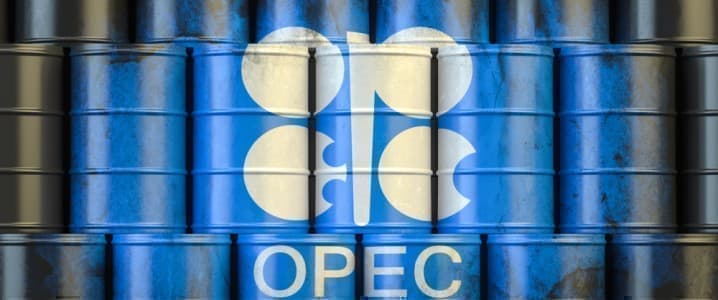As OPEC+ members are discussing their production policy for the rest of 2024, the group has also re-opened a debate over each producer's capacity to pump oil. These oil production capacities will become the basis for any output quotas under the OPEC+ deal for 2025, which has prompted several producers to push for higher estimates of their capacity.
In November last year, OPEC announced that as part of the Declaration of Cooperation, as the OPEC+ agreement is officially known, independent consultancies will review the countries' production capacities this year.
By the end of June 2024, all OPEC and non-OPEC countries in the Declaration of Cooperation will go through an assessment by three independent sources – IHS, Wood Mackenzie, and Rystad Energy – specialized in oil upstream sources to identify countries' production capacities to be used for 2025 reference production levels.
"The OPEC Secretariat will coordinate the assessment while maintaining the independency of the three sources (IHS, Wood Mackenzie and Rystad Energy)," OPEC said.
The assessment will not be ready in time for the June 2 meeting this weekend, but it could spark later this year new internal disputes in OPEC and in the wider OPEC+ group, similar to the one that led to Angola quitting OPEC at the end of 2023.
Over the past few years, OPEC has been wrangling over how much each country claims to be able to produce. The higher the oil production capacity, the higher the respective production quota under the deal is.
Last year, OPEC+ readjusted some quotas, giving the United Arab Emirates (UAE), OPEC's third-largest producer, a higher quota while reducing Angola's. The adjustment in quotas ultimately prompted Angola's departure from OPEC at the end of 2023.
At a meeting in June last year, Angola and Nigeria were given lower crude oil production quotas as part of the OPEC+ agreement after the two producers had underperformed and failed to pump to their quotas for years due to a lack of investment in new fields and maturing older oilfields.
Angola is planning to maintain oil production above 1 million barrels per day, which is why it left OPEC, natural resources minister Diamantino Azevedo said early this year.
"This organization no longer aligns with Angola's values and interests," Azevedo said in January, as quoted by Bloomberg. He added that OPEC had assigned "production quotas challenging our actual capabilities and needs, we made the formal decision to withdraw our country."
The capacity assessments by independent sources could lead to more disputes within OPEC and the larger OPEC+ group, as several producers argue they should be assigned higher quotas for 2025 as they expand their production capacity.
OPEC's the UAE, Iraq, Kuwait, and Algeria, as well as non-OPEC producer Kazakhstan, are among the countries under scrutiny over their capacities, sources with knowledge of the re-opened debate over production capacity told Bloomberg earlier this month.
Internal discussions about some producers' ability to pump more oil – and hence potentially entitled to higher quotas next year – have become heated in recent weeks, sources involved in the talks told Bloomberg.
As members push for higher output quotas, the alliance could see another bitter dispute among members, threatening the cohesion that OPEC+ has tried to preserve while deciding whether or not to withhold supply from the market.
At this weekend's meeting, the group is expected to roll over the current production cuts of around 2.2 million barrels per day (bpd) until the end of the year.
"High expectations of a full rollover mean that OPEC+ needs to ensure it does not disappoint the market, otherwise, it risks an aggressive pullback in prices," ING commodity strategists Warren Patterson and Ewa Manthey wrote in a Wednesday note.
By Tsvetana Paraskova for Oilprice.com
More Top Reads From Oilprice.com:
- Russia Seals Nuclear Power and Gas Deal with Uzbekistan
- Gasoline Prices Surge as Summer Driving Season Heats Up
- India's Largest Refinery Inks Russian Oil Deal



















OPEC+ may decide not to alter its current production policies during its virtual meeting on 2 June 2024.. The reason is that market fundamental are solid and global oil demand is robust supported by record-breaking Chinese crude oil imports. Adding more cuts won.t help while manipulation of the market by the United States in cahoots with the IEA, speculators and oil traders is going on to depress oil prices. On the contrary, it will reduce OPEC+'s market share.
Sooner or later market fundamental will prevail over manipulation as they always do and we will see soon a resurge of prices with Brent crude heading towards $90 a barrel.
Therefore, OPEC+ may not have to discuss during its meeting requests from some of its members for a rise in their production quotas..
Dr Mamdouh G Salameh
International Oil Economist
Global Energy Expert